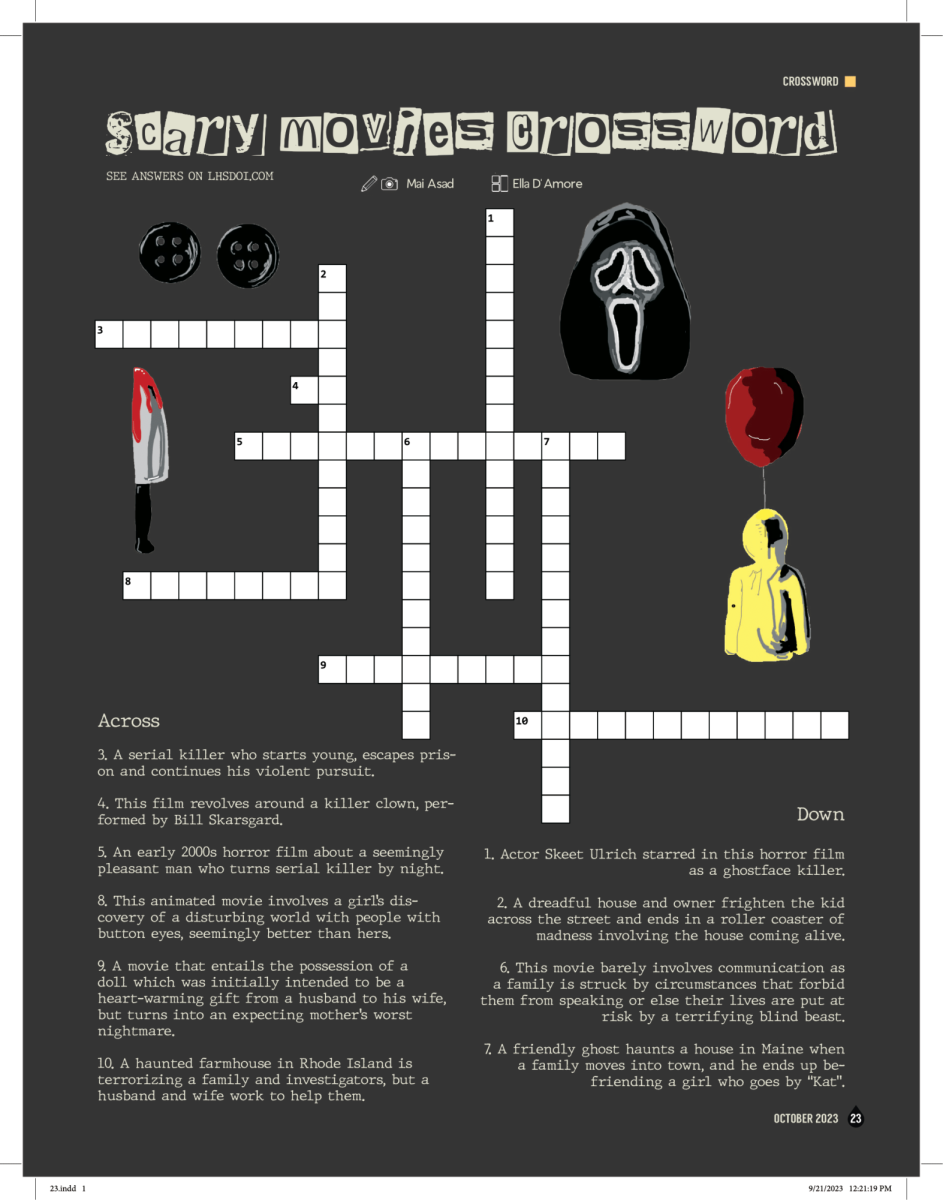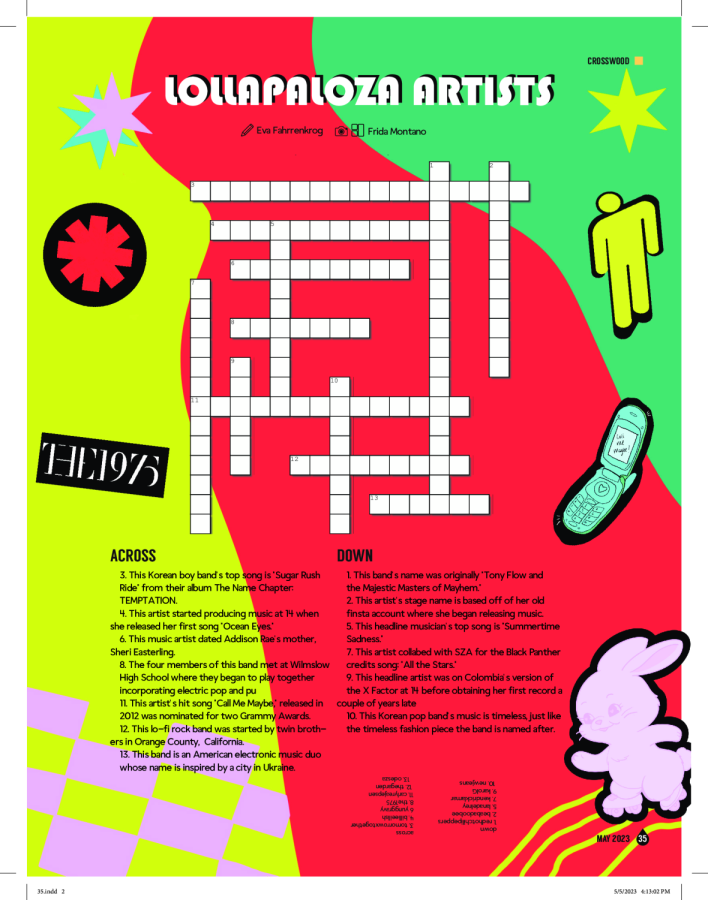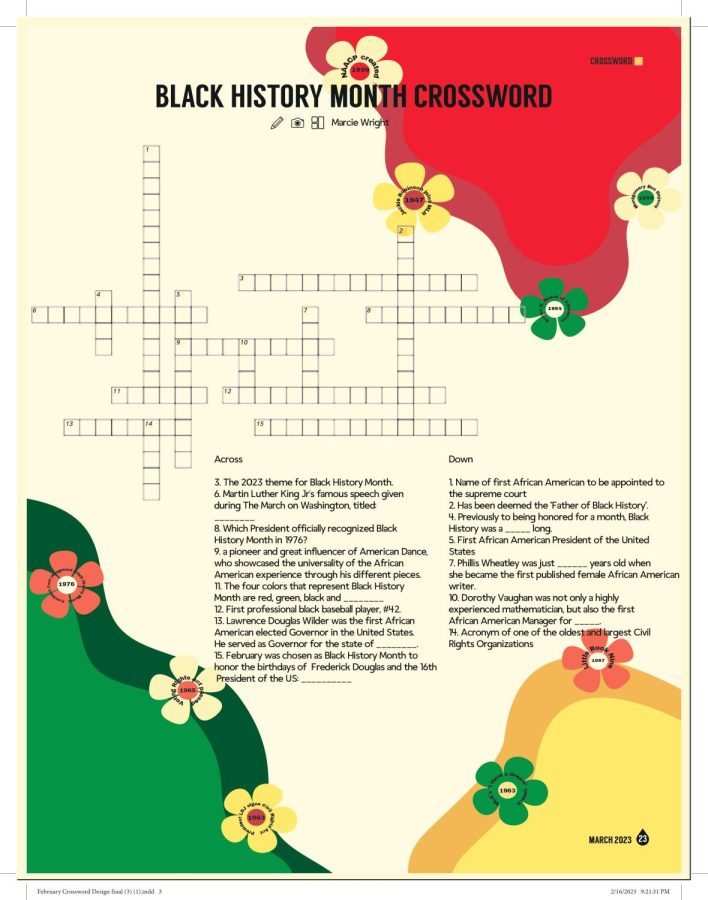On Dec. 4, Kid Cudi released his new album entitled “Speedin’ Bullet to Heaven.”
Scott Mescudi, better known by his stage name Kid Cudi, is a musician from Cleveland who, before this new album, produced primarily rap/hip hop records. He came into the scene in 2008 with his mixtape called “A Kid Named Cudi.” After that, his career skyrocketed, producing hit after hit, and selling over 5 million digital singles since the start of his career, according to MTV. In addition, Cudi has collaborated on tracks with artists such as Jay-Z, MGMT, and Snoop Dogg.
Kid Cudi revealed that he would be making a new album last April, and up until December 4, he gave hints as to what the album would sound like. The biggest reveal came through Twitter when he announced the album would be of the alternative/punk rock genre, rather than hip hop.
At first, I was skeptical of Kid Cudi drastically changing his style, but I was also excited to hear what it would sound like. In many musical artists’ careers, it becomes necessary to change things up in order to keep their audience interested. I thought that this change in sound would be good for Cudi, but unfortunately, I was mistaken.
The album contained 26 songs and was about an hour and a half long. After the first couple songs, I actually had high hopes for the album. “Edge of the Earth/Post Mortem Boredom” was a great track which featured Cudi’s muffled singing over a catchy guitar riff. After came “Confused!”, one of the few songs released before the album officially dropped. This song, although more rock sounding than his previous songs, sounded like a classic Cudi hit right off the bat. The lyrics of this song mentioned Cudi’s struggle with drug addiction, as he sings “I hate the drugs, but I love the numb.”
Unfortunately, after the first two songs, the majority of the songs to follow were a complete miss for me. The remaining songs for the most part lacked in variety and were pretty boring. Cudi played guitar for all the tracks on this album, but he rarely switched up the sounds of his guitar riffs throughout the album.
On songs such as “Screwed”, “Fade to Red”, and others throughout the album, the song structure is uninteresting. The songs are essentially just one verse after the next, keeping a constant sound throughout the song. It is nice in music to have an occasional break from the traditional verse-chorus-verse song structure; however, these songs on the new album, leave you begging for Cudi to insert a chorus or even a bridge somewhere in the songs. Many of the songs show potential to be great punk hits, but the lack of variety within the songs ends up being a major downside for the album.
Another problem I had with the album was the bizarre Beavis and Butthead appearances after many songs. I am not making this up. Cudi actually had Mike Judge, voiceover artist for “Beavis and Butthead,” make a cameo on the album to talk about random things between the music. Why Cudi did this is beyond me. Instead of a fluid album with one song transitioning right into the next, the listener is constantly interrupted by the incessant laughter and superfluous dialogue of two invisible cartoon characters.
Thankfully, the album did end on a positive note. The 17th and 18th tracks on the album, which were the last two songs of the top side of the disc, were solid songs. The titular track “Speedin’ Bullet to Heaven” was an edgy single with a pleasant mixture of electric and acoustic guitars. After that came the song “Embers”, which was a slower, more mellow song with a catchy tune.
But overall, the majority of the tracks on this album were simply forgettable. It was interesting to hear Cudi change up his sound, but unfortunately, it did not work out in his favor with this album. With that being said, I do believe that this album showed potential. The first attempt at a punk rock album was unsuccessful, but hopefully Cudi will learn from this experience and put that knowledge into making his next album. Scott Mescudi is a gifted musician and I sincerely believe this album will not be the last we see of him.








